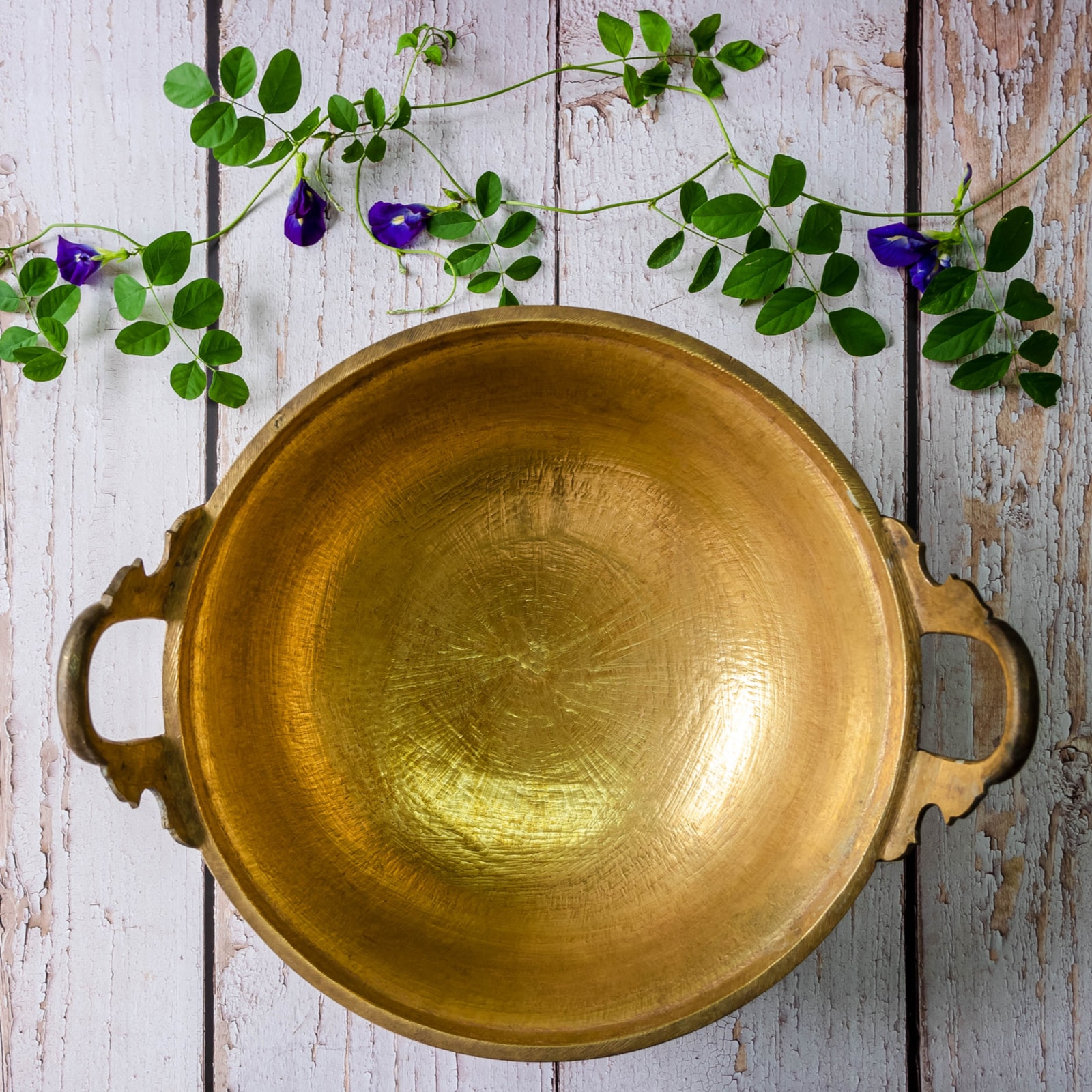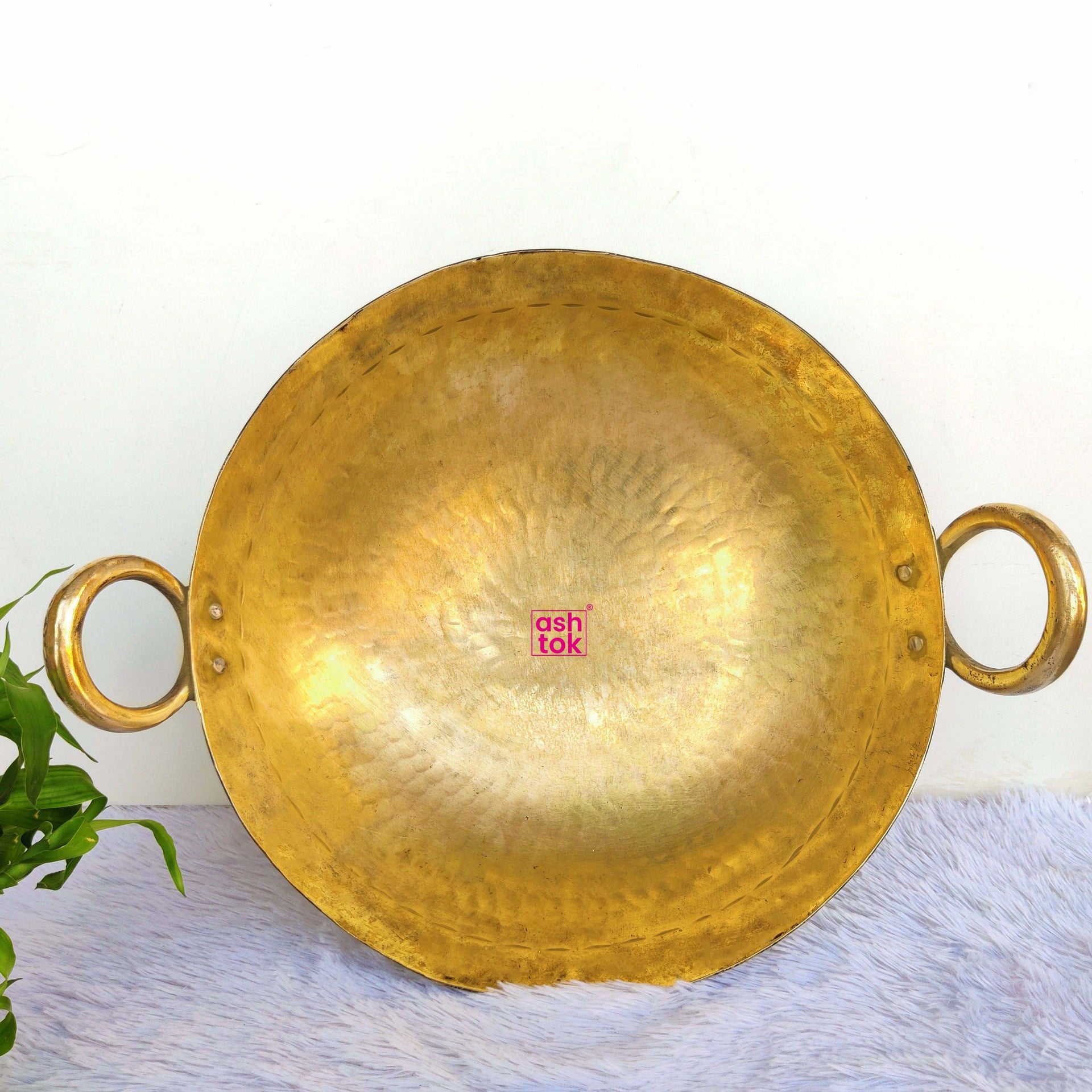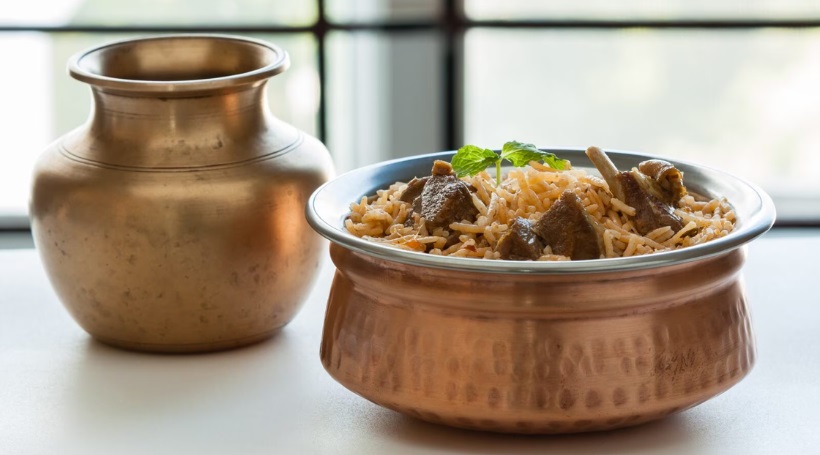Last Updated on January 1, 2025
Bronze utensils are not suitable for cooking because they can react with acidic foods and cause toxicity. They also corrode easily over time.
Bronze, an alloy of copper and tin, has been used in various applications for centuries. Despite its historical significance, it is not ideal for cooking due to its reactive nature. Acidic foods can cause the metal to leach into the food, posing health risks.
Additionally, bronze utensils corrode, leading to a shorter lifespan and potential contamination. Modern cookware materials like stainless steel and non-stick coatings offer safer and more durable alternatives. Understanding the limitations of bronze helps in making informed choices for healthier cooking practices. Choose utensils that ensure safety and longevity for a better culinary experience.

History Of Bronze In Cooking
Bronze has been part of human history for ages. It’s an alloy of copper and tin. Bronze utensils were once common in ancient kitchens. They were prized for their durability and beauty.
Ancient Practices
In ancient times, people used bronze for many tools. These included cooking utensils. Ancient Egyptians, Greeks, and Romans all used bronze. They believed it was strong and long-lasting.
Bronze utensils were used for boiling and roasting. They were also used for ceremonial purposes. Some even believed bronze had special powers. Its shiny surface made it popular in wealthy homes.
Modern Shift
Today, we rarely use bronze for cooking. Modern science found some issues with it. Bronze can react with food. This reaction can cause toxic substances. Copper and tin can leach into food. This is not safe for our health.
Modern cooking utensils are made from safer materials. Stainless steel, cast iron, and non-stick coatings are common. These materials do not react with food. They are also easier to clean and maintain.
| Material | Properties | Safety |
|---|---|---|
| Bronze | Durable, conducts heat | Can leach toxins |
| Stainless Steel | Non-reactive, durable | Safe |
| Cast Iron | Retains heat, durable | Safe with proper care |
| Non-stick | Easy to clean | Safe with proper use |
- Bronze utensils were once used for cooking.
- They were believed to be strong and long-lasting.
- Modern science found they can be harmful.
- Safer materials are used in today’s utensils.
- Ancient people used bronze utensils.
- Bronze utensils can react with food.
- Modern utensils are made from safer materials.
Switching to modern materials ensures safety and ease of use.

Composition Of Bronze
Bronze is an ancient metal alloy known for its durability. It is made by mixing copper and tin. This combination creates a strong and versatile material. Let’s dive into its components and properties.
Materials Used
Bronze is primarily composed of two metals:
- Copper: Makes up 88% to 90% of the alloy.
- Tin: Accounts for 10% to 12% of the mix.
Other elements can be added to enhance properties:
- Aluminum for strength.
- Nickel for corrosion resistance.
- Phosphorus for wear resistance.
Properties Of Bronze
Bronze has unique properties making it suitable for various applications:
- Durability: Bronze is very strong and long-lasting.
- Corrosion Resistance: It resists corrosion well.
- Conductivity: Conducts heat and electricity effectively.
Despite these properties, bronze is not ideal for cooking utensils. The reasons are crucial to understand:
- Reactivity: Bronze can react with acidic foods.
- Health Risks: Leaching of metals can pose health risks.
- Maintenance: Requires frequent polishing to prevent tarnish.
These factors make bronze unsuitable for daily kitchen use. Stick to safer materials for cooking utensils.
Health Concerns
Using bronze utensils for cooking has raised health concerns among many people. There are several reasons why these concerns exist. This section will delve into the toxic elements and potential risks associated with using bronze utensils in the kitchen.
Toxic Elements
Bronze is an alloy made from copper and tin. Sometimes, other metals like lead are added. Lead is a toxic element and can cause serious health issues. Cooking with bronze utensils may lead to lead contamination in food. This is especially harmful to children and pregnant women.
Even without lead, copper in bronze can be problematic. High levels of copper can leach into food. Copper toxicity can cause nausea, vomiting, and stomach cramps. Long-term exposure can lead to liver damage.
Potential Risks
Using bronze utensils for cooking poses several potential risks. One major risk is the possibility of metal leaching into food. This can be harmful to our health. Another risk is the uneven heat distribution in bronze utensils. This can lead to improperly cooked food, which may cause food poisoning.
Here are some of the key risks:
- Lead contamination from bronze utensils
- Copper toxicity from leaching metals
- Food poisoning due to uneven heat distribution
Below is a table summarizing the main health concerns:
| Concern | Impact |
|---|---|
| Lead Contamination | Serious health issues, especially in children and pregnant women |
| Copper Toxicity | Nausea, vomiting, stomach cramps, liver damage |
| Uneven Heat Distribution | Improperly cooked food, risk of food poisoning |
Effect On Food Quality
Bronze utensils have unique properties that impact food quality. While bronze has historical significance, it may not be the best choice for modern cooking. Let’s explore how bronze affects food quality through two main aspects.
Taste Alteration
Bronze can alter the taste of food. The metal can interact with ingredients, changing their natural flavors. This can lead to unexpected taste profiles in your dishes. For example, acidic foods like tomatoes can react with bronze, resulting in a metallic taste. This is why many chefs avoid using bronze utensils for cooking.
Chemical Reactions
Bronze consists of copper and tin. Both metals can react with food. These reactions can cause unwanted changes in the dish. Copper, in particular, can react with acidic foods. This can lead to the formation of toxic compounds. Tin, although less reactive, can still affect food quality. These chemical reactions make bronze less suitable for cooking.
Below is a table summarizing the key points:
| Aspect | Effect |
|---|---|
| Taste Alteration | Metallic taste in acidic foods |
| Chemical Reactions | Formation of toxic compounds |
Using bronze utensils for cooking can lead to these issues. This is why many prefer stainless steel or other materials.
Safer Alternatives
Many people ask why we can’t use bronze utensils for cooking. Bronze can react with acidic foods. This reaction can release harmful substances. It’s important to use safer alternatives. Let’s explore two excellent options: Stainless Steel and Cast Iron.
Stainless Steel
Stainless steel is a popular choice for cooking utensils. It is durable and does not react with food. This material is easy to clean and maintain. Here are some key benefits:
- Non-reactive with food
- Long-lasting and durable
- Easy to clean
You can use stainless steel for all types of cooking. It is safe and reliable. Check out the comparison table below:
| Feature | Stainless Steel | Bronze |
|---|---|---|
| Reactivity with Food | Non-reactive | Reacts with Acidic Foods |
| Durability | Very Durable | Moderate |
| Maintenance | Easy | Moderate |
Cast Iron
Cast iron is another excellent alternative. It can be seasoned to create a non-stick surface. This material is great for heat retention and even cooking. Here are its benefits:
- Excellent heat retention
- Can be seasoned for non-stick cooking
- Very durable
Cast iron requires some care but it lasts a lifetime. It is versatile and can be used for many recipes. See the comparison table below:
| Feature | Cast Iron | Bronze |
|---|---|---|
| Heat Retention | Excellent | Moderate |
| Non-stick Surface | Can be Seasoned | No |
| Durability | Very Durable | Moderate |

Frequently Asked Questions
Why Avoid Cooking With Bronze Utensils?
Bronze reacts with acidic foods, producing harmful compounds.
Is Bronze Safe For Cooking?
No, bronze can leach metals into food.
Can Bronze Utensils Cause Health Issues?
Yes, they can lead to metal poisoning.
What Are The Alternatives To Bronze Utensils?
Use stainless steel or cast iron utensils.
Does Bronze Affect Food Taste?
Yes, it can alter the taste of food.
Why Are Bronze Utensils Used Less Today?
Health risks have reduced their popularity.
Conclusion
Choosing the right cookware is essential for safe cooking. Bronze utensils can leach harmful metals into food. Opt for safer materials like stainless steel or cast iron. These alternatives ensure healthier meals and longer-lasting kitchenware. Prioritize your health and kitchen safety by avoiding bronze utensils for cooking.

